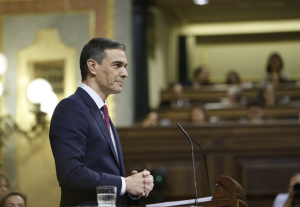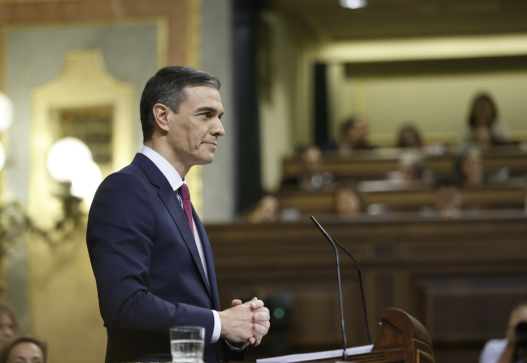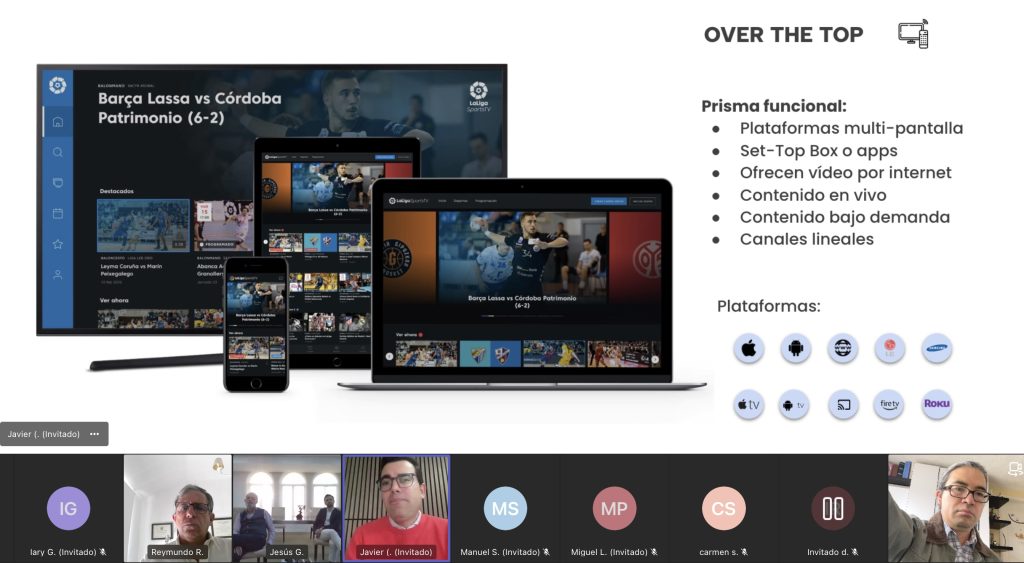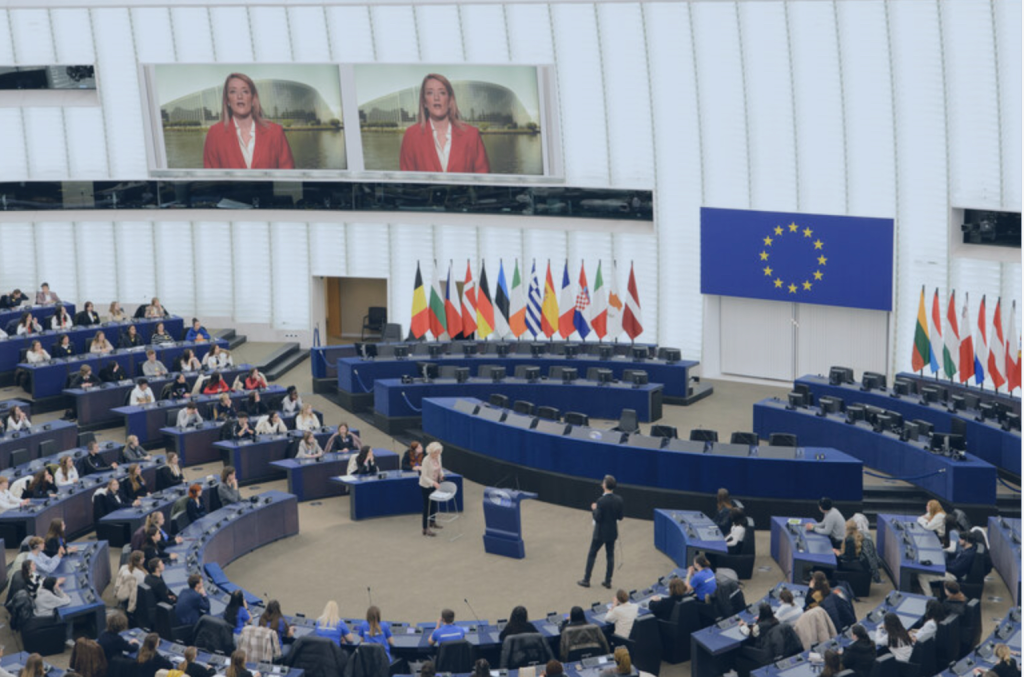
PEDRO SÁNCHEZ, PRESIDENT OF THE GOVERNMENT OF SPAIN FOR THE THIRD TIME
179 votes in favor and 171 against. That was the final result of the investiture vote, thanks to which Pedro Sánchez, leader of the Spanish Socialist Workers’ Party (PSOE), will remain as President of the Government of Spain for another term.
After two days of debates, the investiture vote concluded this Thursday, November 16, 2023, in the Plenary of the Spanish Congress, with the indicated results.
In order to obtain that absolute majority, Sánchez managed to add the support of eight different political groups. There are, of course, the PSOE itself, ERC, Junts, EH Bildu, PNV, BNG, Coalición Canaria and Sumar. Within the latter are other groups such as Podemos, IU, Más País, Comuns, Compromís, Chunta Aragonesista or MÈS, among others.
VOTE BY VOTE
The details of the vote in favor of Sánchez are as follows:
-121 PSOE deputies
-31 for Sumar
-7 of ERC
-7 of Junts per Catalunya
-6 of Euskal Herria Bildu (EH Bildu)
-5 of the Basque Nationalist Party (PNV)
-1 Bloque Nacionalista Galego (BNG)
-1 Canary Islands Coalition (Coalición Canaria)
Against voted:
-137 PP deputies
-33 Vox
-1 UPN
THE PATH OF SÁNCHEZ
Sánchez’s first government began in 2018, the year in which he presented a motion of censure against Mariano Rajoy, due to cases of corruption in the Popular Party (PP).
He won that political battle and ruled alone until new elections in 2019. On that occasion, to achieve the investiture he also obtained the support of the same parties that today backed him. Except that, on that occasion, Unidas Podemos (the Podemos of now) had a very important force of its own, with 35 deputies. This allowed the leader of that party, Pablo Iglesias, to be appointed second vice-president.
THE AMNESTY LAW, A KEY AND A CHAIN
The pacts that now allow Sánchez to remain in La Moncloa have not been free of controversy.
The support of Junts, the Catalan pro-independence party, has been made possible by Sánchez’s commitment to issue an Amnesty Law, the text of which -proposed by the PSOE- was already submitted to the Spanish Congress for its urgent processing on November 13.
If passed, the law would annul the criminal, administrative and accounting responsibility of all those who committed crimes related to the sovereignty process in Catalonia during a decade, between January 1, 2012 and November 13, 2023. Some 400 people could benefit from the extinction of the judicial proceedings against them and even of the sentences that in some cases have already been handed down.
Among the beneficiaries of that proposed law is Carles Puigdemont, leader of Junts. In 2017, he left Spain, where he was being followed in several judicial cases for the facts related to the so-called ‘Procés’, the independence process in Catalonia.
Puigdemont remains in Brussels, Belgium, as a fugitive, according to the Spanish justice system, or as an exile, according to his supporters.
The proposal of this law has provoked street demonstrations, which have lasted two weeks and have even been held outside the Spanish Congress during the two days of debates for the investiture of Sanchez.
The approval of the Amnesty Law will still take a few months. In the meantime, he will have to overcome the appeals against this law that the PP and the ultra-right-wing Vox will present before the Constitutional Court and before the Justice bodies of the European Union, of which Spain is a member.
Its approval or not is key for governability in Spain. Spokespersons of Junts have said that “the stability of the Legislature is subject to the advances and fulfillment of the agreements”. And that the support to the PSOE will be seen “day by day”.
“THIS IS A MISTAKE”
At the conclusion of the vote, Sanchez greeted briefly with Alberto Núñez Feijoó, leader of the PP, who failed in recent days to get enough support in the Legislature to be invested president of the Spanish government.
“This is a mistake” was what Feijoó told Sánchez during that handshake.
Later, before the media, Feijoó told more: “I have told the President of the Government that this was a mistake, but he is responsible for what he has just done (…) Are we worried about the situation in which this president enters, subjected to a monthly contract to be signed by the independentism? The answer is yes”.
The leader of the PP considered that “the President of the Government is intervened by the independentism, he is going to be president for as long as the independentism wants, and unfortunately the decisions are not going to be taken in this Chamber”.
This text is free to use. If you use it, please cite EditoRed.



